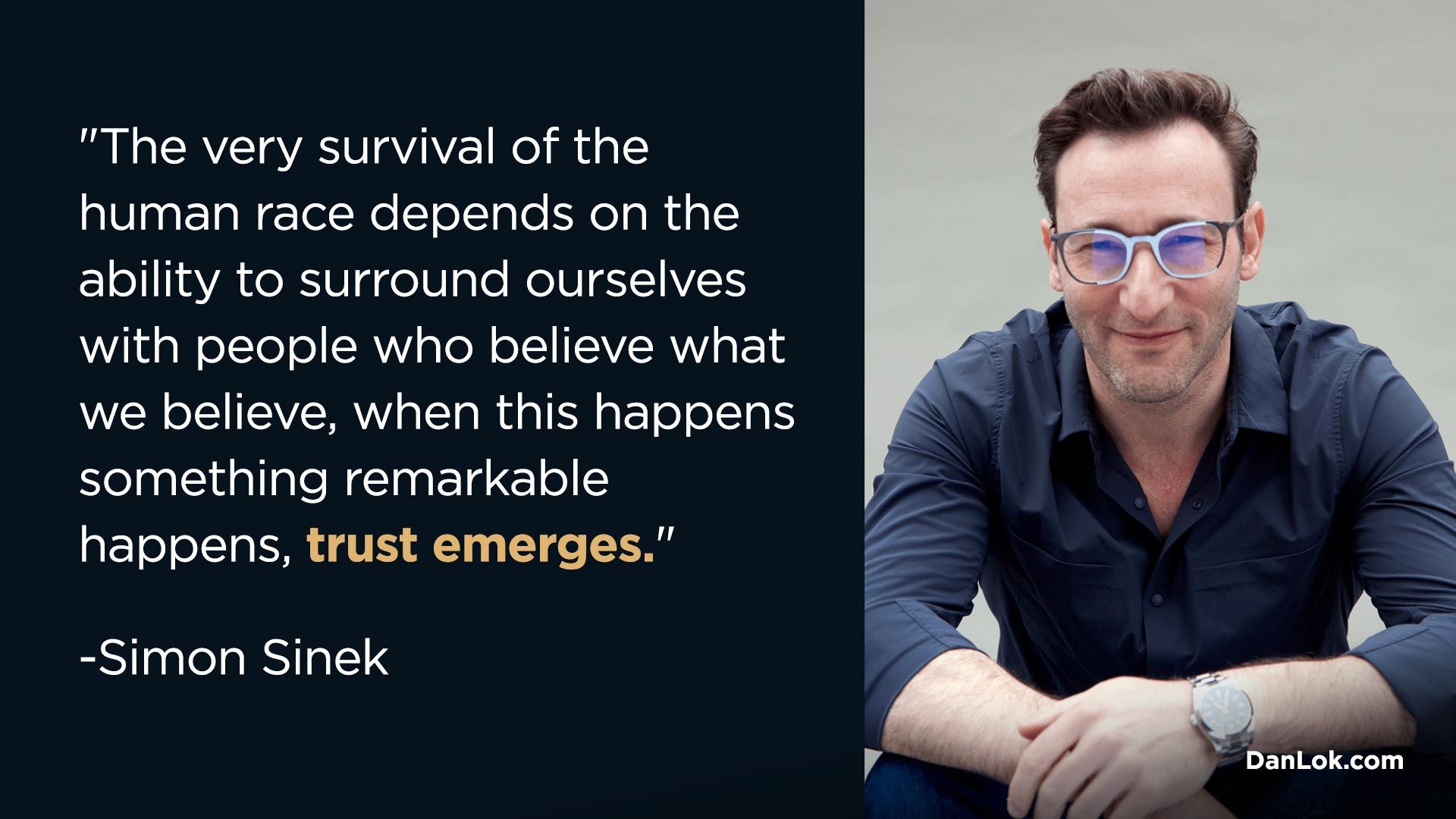If you’re an entrepreneur involved in a partnership, corporation, sole proprietorship or LLC, then chances are you’ll encounter multiple business contracts on your journey towards financial success. It could be a contract to bring in short term contractors, or a business deal which allows your company to grow. Regardless of the need, it is essential for you to understand the different types of business contracts in your industry. However, before we unveil the most profitable contracts to sign, it’s important to understand the basis behind a business contract.
If you’re new to the world of business contracts, you’re probably wondering what a legitimate business contract would look like. A business contract can be defined as a legal agreement between you and another party in the form of written or verbal communication. They are commonly seen in situations where services are required in trade of monetary compensation or an offered good.
Business contracts are agreements where individuals are assigned a duty and paid based on the contract’s terms. For example, a business contract might state that a marketing agency will provide services to a company. The payment structure is negotiated and added to the contract. Whether it’s a retainer agreement or another form of payment, it’ll always be detailed in the contract.
A business owner might sign a short-term contract, which typically last for less than six months. Or, they’ll sign a long-term contract which typically last for six months and longer.
Short-term contracts are best designed for companies who are limited by budget and do not require ongoing services after the specific project is completed.
Long-term contracts, on the other hand, are best for companies who have long-term goals requiring ongoing services to ensure their success is maintained. If a company knows they require an ongoing service, a long-term contract will be created. Long-term contracts have been proven for years to be more beneficial as they provide stability and minimal room for errors.
This article will only focus on long-term contracts, but feel free to explore short-term contracts if they appeal to your business needs.

Long-Term Business Contracts: The Dos and Don’ts
The entire premise of a business contract lies in the partner or company you desire to work with. Think about it: what happens if you get trapped in a six month contract with bad terms or a bad partner? Before jumping into a contract, it’s important to start the conversation by getting to know the person you’re working with. So to help you choose the right long-term contract, we’ve created some dos and don’ts to help ensure your company is in safe keeping.
The don’ts of contract signing
Don’t ignore red flags when negotiating a contract with someone.
One of the biggest red flags in a client is their attempt to cut prices or negotiate a discounted rate during your first interaction. This is a strong indication that your client is not capable of producing results or is not willing to go the extra mile for your company. Think about it: If a company tries to negotiate a lower price, doesn’t that mean their product or service isn’t as valuable as they claim it is?
The second biggest red flag is the client’s skepticism before entering into an agreement or a contract. Your client should have full faith in your company and should not be hesitant to sign a contract. Think about what might happen if your relationship starts off on a bad note. Odds are you’re in for a roller coaster of a journey.
The dos of contract signing
There are many factors to help you determine if a client is ideal for business.
The first tip is to find a client who’s is already successful in their respected industry. It’s always wise to sign with someone with proven results and the track record to get the job done. Your company is in search of results and strategy, so don’t hesitate to ask if they’re credible at what they do.
Another tip is to have a client who respects and trusts who you are. Signing a long-term business contract is similar to engaging in a long-term relationship. Think about it like dating someone, would you ever ask a girl or guy out if the initial meeting phase was rocky? Probably not, and the same analogy applies to signing a contract with a client.
It’s always wiser to sign a contract with someone who has proven results and a great track record. Click To TweetNow, let’s review the most profitable business contracts for your company. Below are the top 10 most profitable long-term business contracts:
1. Business Contracts for Websites
Have you ever signed up for a website and were forced to comply with a company’s ‘terms and conditions’ agreement? Do you wonder why companies have one? Terms and conditions for websites are designed to protect the company or website owner against any allegations from their visitors. It is a set of regulations where users are required to comply in order to use a service or product. You might find Terms of Service often replaced by Terms of Use, Terms of Conditions, or disclaimers on various websites. But keep in mind the context of each is identical.
As a long-term strategy for your company, having a Terms of Service agreement on your website will prevent you from getting into legal liabilities and obligations. The agreement will present limitations such as copyright protection warnings and jurisdiction information to your clients or viewers. This means that your company will stay protected while demonstrating to your customers their rights of using your products.
So you might be thinking, who on earth reads the ‘Terms and Conditions’ of a contract? We get it, not a lot of people do. But if you ever encounter a situation where someone breaks your terms and agreements, you’ll be able to save a lump sum of money if someone steals your product. This is why it can be one of the more profitable long-term business contracts.
2. Business Contracts for Privacy
A common way of protecting your company’s information is by having contractors, employees or vendors sign a non-disclosure agreement to ensure information remains confidential. A non-disclosure agreement (also known as an NDA) can be defined as a legally binding contract that establishes a relationship regarding a confidential topic. Upon signing an NDA, the parties must agree that sensitive or personal information obtained will not be made available public or used as a means of progression.
The amount of information listed on an NDA is strictly up to the discretion of the business owner. You can include sensitive information about your company, confidentiality agreements based on new products or concepts, or lines stating which information is allowed to be spoken of. There are other cases where you can include plans and unreleased news on your NDA. Morally, just ensure that whatever you desire to protect is signed by every affiliate who seeks resignation or current employment.
We’ve classified a non-disclosure agreement as one of the most profitable business contracts as they’ll always be beneficial in the long run for your company. Protecting information such as new releases is important for your company, and factors such as leaked information might soil your entire plan if competitors gain access.

3. Business Contracts for Partners
Most companies today rely on business partners to help fund the business and keep it growing. If you plan on partnering with someone in the future then this section is perfect for you. Whenever getting into a partnership arrangement, it’s important for both parties to sign a partnership agreement contract. A partnership agreement is a business contract that lays out the terms and conditions as it pertains to the agreement between two or more partners.
This agreement can contain attributes such as ownership percentages, length of partnership and means of termination. It must be signed when you start a partnership and must be thoroughly in review by both parties before business is eminent. As the business owner, it is your duty to ensure all gaps in the contract are secure to a full extent. Start by asking yourself “what if” to see your options if the partnership goes south. Remember, the point of the agreement is to ensure any disagreements are in safe keeping. Most partnership contracts last for multiple years, which is why we’ve included it in the most profitable business contracts in today’s market.
4. Business Contracts for Employers
Company’s today are hiring candidates for all aspects of their company. Businesses need all sorts of employees in accounting, management, marketing, IT, etc. To put your company’s protection at best interest. Every employee should receive an employment contract to verify the employment relationship between you and the employee. This contract is an employment agreement.
An “employment agreement” is a document between an employer and employee stating the legal obligations and requirements the employee must follow. This can include policies, responsibilities or special obligations undertaken during the hiring phase.
Your employment agreement can also have multiple terms such as their salary, entitlement for dismissal, and benefits attached to the job. If an employee commits a fraudulent or mischievous activity that is not on their agreement, you can relate back to the contract and show the action deemed as not tolerated on company property. This will protect your company for years to come and will help your employees understand their rights and responsibilities.
5. Business Contracts for Office Space
Similar to having a car or renting an apartment, commercial compounds use a form of business contract identified as a lease. A commercial lease can be defined as a legally binding contract made between a landlord and a business tenant. The lease agreement provides the rights for a tenant to use the property for a business or commercial activity for a set period of time. In exchange, the landlord receives money in monthly or bi-weekly installments for the use of space.
Most companies use leases as a long-term strategy for saving money compared to buying or building out a large commercial building for their operations. It’s cheaper in the long run and is most beneficial to small-businesses who are newly starting up. When looking for a lease it’s important to ensure the contract is well suited for your company. Things to look out for are landlord permits, obligations, expenses, and tax increases. Chances are you’ll be in this property for a while, so ensure you’ve found the right space that is an adequate work space and affordable.
If you ever need a second look on the lease, feel free to seek professional help from a lawyer or financial expert who has a thorough background in the real estate industry. They will be able to spot any loopholes or gaps in the contract that might become present in the future. Just note there are fees for using their service.
6. Business Contracts with Banks
Most people today use banks to pay off their cars, mortgages or miscellaneous expenses. If you’re into real estate or are a full-time investor, you might be familiar with regularly asking the bank for money for rental properties. The most common contract to lend out money through a bank is a loan agreement. A loan agreement is a binding contracts between multiple party to finalize factors such as collateral’s, guarantees, interests rates and duration of payment.
A loan agreement has various characteristics that are essential for your business to understand. The agreement will have the total cost of loan, the payment schedule, the right to default, and the flexibility on use of the loan proceeds. Similar to the idea behind an office space, it’s important for your company to have a logical plan set in place to pay off the loan as installments arise.
Companies use loan agreements to increase their capital and expand their inventory. Conventionally people believe loans can only come from a bank, but loans can be found from a variety of sources. There are credit unions, public funds and private investors who are willing to loan you money if your idea or business model suits their liking’s. Just note taking a loan can be dangerous if not planned out correctly. Always sit down with a professional financial advisor or accountant to ensure your company has a plan to uphold the end of your deal.
We conventionally believe loans can only come from a bank, but in reality we can find money from many other sources. Click To Tweet7. Business Contracts for Purchases
Have you ever wondered how grocery stores and warehouses are able to purchase large sums of items at a time? Company’s use a business contract called a purchase order to connect the manufacturer with the buyer who purchases in bulk. It’s an agreement which sets the quantity of items with a negotiable price for a certain date. It also specifies the payment terms so both parties understand when they’ll receive or give payments.
For example, let’s say company X sells 1000 chairs to company Y for $100.00 with a delivery schedule of 10 days. Between them is a purchase agreement, stating 1000 chairs to be in 10 days for the purchase price of $100.00. The purpose of this contract is to ensure both parties remain ethical and receive payments or deliveries on time. Think about it like a receipt for an item you buy at a store. Let’s say you never got a receipt, would you be able to return an item back to the store? Or in terms of a large shipment, how will the buyer know if the seller is a scam? It’ll keep you safe in the long run knowing you have a written report if dilemmas arise.

8. Business Contracts for Contractors
Have you ever had an independent contractor perform work in your home? Maybe it was a kitchen renovation, a bathroom tear down, or a garage door replacement. To ensure you and your contractor are safe from legal liabilities, it’s important for both parties to sign an independent contractor agreement. An Independent Contractor Agreement can be commonly refereed to as a service agreement or consulting agreement. It’s a document that states the business relationship between a contractor and a client. More specifically, the financial aspect and service details in full clarification.
With respect to a small or large scale business, you’ll typically encounter independent electricians or construction workers who perform repairs or maintenance on your office space. Ensure the agreement states the offered service, contract end date, expenses, unfinished work and ownership rights upon completion. These are to negotiable when both parties sign a contract.
9. Business Contracts for Equipment
If you’re a company or individual who rents or requires heavy equipment for operation, then this section is for you. Whenever you lend out a piece of equipment, what should you do? It’s important for both parties to sign a business contract called a property and equipment lease. This is a contract that lists the terms and conditions for lending a piece of equipment, which includes information such as monthly payments, terms, deposits and ongoing maintenance requests. Doing this helps ensure the lent out equipment comes back in the same condition as it was originally sent.
If the lender brings back equipment in a poor condition, you can rest assured knowing the other party signed a contract stating their rights of usage for the respected tool. And if the lender fails to make monthly payments, you can bring up the contract in court or to the lender. It’s beneficial in the long-run in case any mishaps or future incidents arise.
10. Business Contracts for Dismissed Employees
During the lifetime of employment, employees tend to become familiar with your company’s motives. More specifically, the ins and outs of their respected industry. So what happens if the employee resigns? What happens if they starts their own venture with the information gained from your company? That’s where a non compete agreement comes into play.
Let’s say you hired a head engineer to design a world-class software for your company. A few months after your product strikes millions, your head engineer decides to hand in their letter of resignation. You can have the engineer sign an non-compete agreement to confirm all information from your company is not public to anyone within a time span of X years.
A non-compete agreement is a contract between an employee and an employer. It states the employee agrees to not enter into competition with their former company during or after employment. Legal contracts prevent employees from entering into markets or professions which are in direct competition with the employer. Simply put, it prevents someone else from taking your ideas and creating something new.
A non-compete agreement lasts for roughly a year, but is not subject to a lifetime holding. Information such as effective start date, reason for enacting, compensation, and location are visible on the agreement. For example, there could be an automotive company who doesn’t want their employees sharing valuable information with other manufacturers. Your company will stay protected long-term, which is why we’ve included it in our most profitable long-term business contracts.
Growing Your Empire
A lot of information on business contracts was presented in this article. Read it over, take notes, and apply your knowledge to ensure your business stays protected at all costs.
However, what if there was a way to grow your company and bring in new revenue you never imagined was possible? And what if this method is so powerful that you’ll never have to chase clients for revenue again? The secret is the High-Ticket Influencer program.
We’ve developed a new 12-week intensive program completely designed to help you grow your empire from the ground up. It doesn’t matter if you have almost zero revenue coming in. Nor if you’re hauling in millions of dollars per year. This program has everything needed to take you to the next level.
The program will coach you on the ins and outs of branding, operations, sales, financing, support and so much more. How about we share with you a sneak peak of the first three weeks of class?
Week one will teach you the strategies to build your own personal media platform. This will start intriguing more customers, and could start flooding your business with revenue.
The second week will teach you how to stand out in today’s market. We will show you a hidden formula to help you dominate any niche, business or industry.
And the third week will teach you the 7 most powerful YouTube secrets. There’s a powerful roadmap of why YouTube videos can make a business blow through the roof out of nowhere. And as a bonus, there are still 9 more weeks of mind-blowing content for you to discover in this program.
If you are ready to grow your empire and build your business, click the link here to sign up for our live masterclass. Slots are filling up fast, so reserve your seat while it lasts.





























